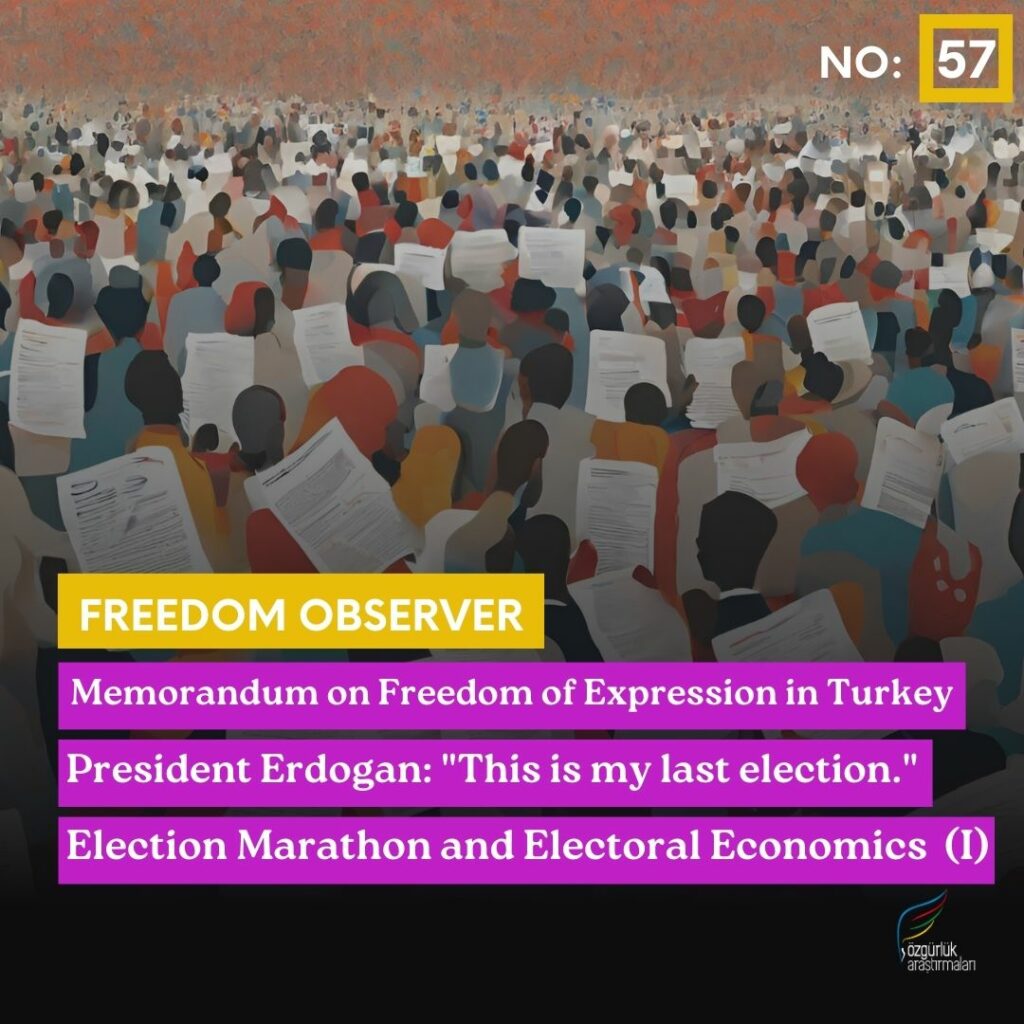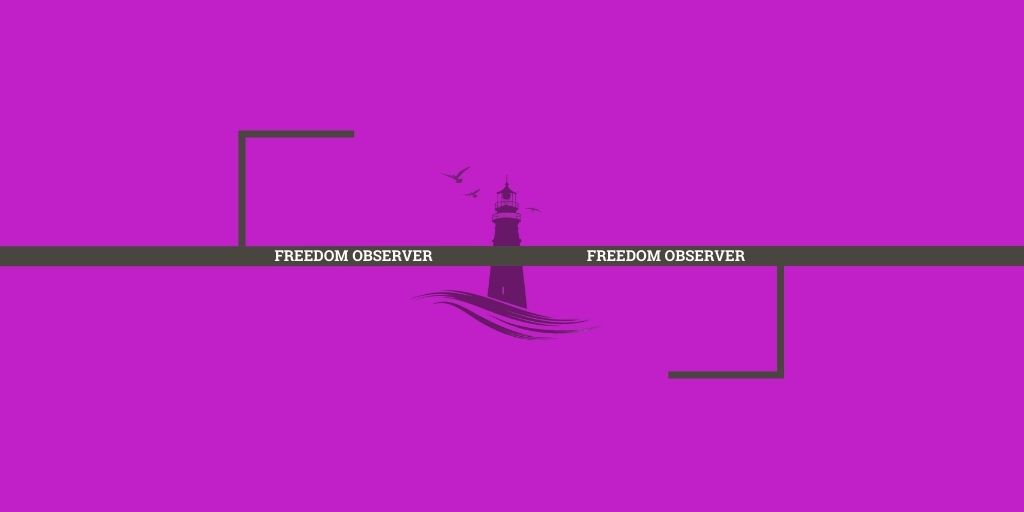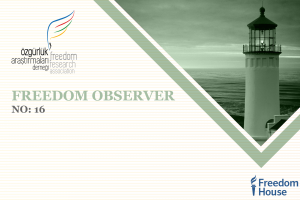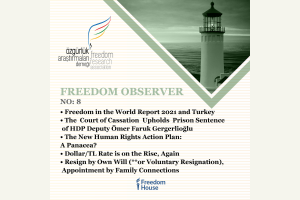
From Editor – in- Chef
Experts have contended from the outset that the authoritarian presidential system introduced by the AKP government through the 2017 constitutional amendment does not constitute a suitable framework for a liberal-democratic system. Furthermore, they argue that it is incompatible with Turkey’s tradition of a parliamentary system of government. As implied by its designation as the “presidential system of government” by its designers, this model envisions an authoritarian one-person regime with the President (the “President”) elected by universal suffrage at its core. This arrangement relegates the legislature to a secondary position and places the judiciary under the President’s tutelage. Unfortunately, nearly six years of practice have confirmed this diagnosis. Independent international observer organizations have corroborated the findings, indicating a decline in the standards of democracy, human rights, and the rule of law. This decline, which had already begun in 2011, has accelerated since 2018, pushing Turkey into the status of an “unfree country”.
It’s noteworthy that President Erdoğan’s utilization of his official powers beyond the limits prescribed for the presidency, as defined even by the Constitution he helped shape, has significantly contributed to this decline. One typical instance of the President exceeding his constitutional powers has been his frequent issuance of decrees, which infringe upon the authority of the legislature, thus constituting a “usurpation of function.” While initially, the Constitutional Court remained silent on this matter, possibly due to the unique circumstances surrounding the state of emergency declared after the July 15 coup attempt, it appears to have finally intervened to curtail the President’s overreach in recent weeks. In a series of decisions rendered between October 26, 2023, and January 18, 2024, the Constitutional Court nullified numerous provisions concerning the Presidential organization and the Justice Academy found in Presidential Decrees No. 1, 34, 48, 64, and 101 issued since 2018. These decisions were made on the grounds that they constituted a usurpation of legislative power or otherwise infringed upon the authority of other branches.
In addition to the tardiness of the Constitutional Court in reaching this determination and assessment, it is also intriguing to observe that these decisions, which limit President Erdoğan’s scope of action within the state system, coincided with a period when the balance of power within the Court was on the verge of shifting entirely in favor of the government.
Another significant development on the country’s agenda is the release of the latest Turkey Report by the Council of Europe Commissioner for Human Rights, which comes following the decisions of the Constitutional Court. Indeed, the troubling findings of this report are not unfamiliar to us, the citizens of Turkey. The report primarily highlights that Turkey’s track record on freedom of expression, press freedom, women’s and LGBT rights, and judicial independence has deteriorated. However, what is particularly noteworthy is the Commissioner’s observation that almost all (90%) of the media is under government control, which is linked to Turkey’s dismal performance in human rights.
Meanwhile, we’ve also been informed that the relevant authorities rejected the request of the Commissioner for Human Rights, Dunja Mijatović, to visit Turkey, which is equally significant. This refusal is no less intriguing than the previous developments. It’s already apparent that the ruling AKP-MHP coalition dismisses the findings and assessments of international civil organizations working on human rights in Turkey as “none of their business.” Unfortunately, it seems unlikely that this government will heed similar warnings from the Council of Europe. A. Rıza Çoban will delve into a more detailed review of this report below.
As we are aware, we are approaching the local government elections. With the upcoming elections dominating current political discourse, crucial issues like the ones mentioned above, regardless of their significance, fail to garner sufficient attention not only from the ruling parties but also from the opposition.
As the March 31st elections draw near, the debates and conflicts between political parties, as well as within the parties themselves, are increasingly surfacing. One of the most notable incidents in recent days involves a statement made by Burcu Köksal, the mayoral candidate of the Republican People’s Party for Afyon. This statement has stirred intra-party tensions and confusion among the general public. Speaking before the opening of the Afyonkarahisar Election Coordination Center, Burcu Köksal stated, “When I am elected, the doors of Afyonkarahisar Municipality will be open to all political parties except the DEM Party.” This statement sparked widespread reactions, prompting Köksal to issue a correction in a subsequent statement. She clarified that her intention was not to discriminate against citizens of the municipality and that she did not intend to involve DEM Party members in municipal administration. However, it is apparent that this correction did not fully alleviate the discomfort caused by the implication of discrimination in Köksal’s initial statement.
Meanwhile, in an attempt to correct Burcu Köksal’s “gaffe,” CHP Chairman Özgür Özel merely said that Köksal had slipped her tongue, while Istanbul Metropolitan Mayor Ekrem İmamoğlu reacted harshly to this incident and said that Köksal would either have to find another job or switch to another party after these words. At first glance, İmamoğlu’s harsh reaction to Burcu Köksal’s statement, “If I become mayor, I will not let these parties into the municipality; I will meet with them except for these parties,” suggests that İmamoğlu is concerned that Köksal is pursuing political discrimination against her Kurdish compatriots. But I think what worries İmamoğlu is the possibility that the unfortunate statement of a mayoral candidate who belongs to his party and is also the party’s deputy group leader in the parliament may deter Kurdish voters in Istanbul who are likely to vote for him. If we remember that opinion polls show that there is no “clear difference” between İmamoğlu and his rival Murat Kurum in terms of likely voter support, it becomes easier to understand why İmamoğlu reacted harshly to Burcu Köksal.
Meanwhile, President Erdoğan made an intriguing statement, declaring that this upcoming election would be his “last election.” This statement is more than curious; it’s somewhat perplexing because there is no election in which President Erdoğan is a candidate for any office. Furthermore, as he himself acknowledges, it is constitutionally impossible for Erdoğan to run for the presidency again.
It appears that Erdoğan is deeply committed to ensuring the victory of his party’s candidate in the upcoming election, particularly in Istanbul. This commitment is so profound that he perceives this campaign as his election campaign despite his position as President.
There seems to be an implication in Erdoğan’s statement, “This is my last election with the authority granted by the law,” which suggests that he acknowledges he cannot be re-elected unless there are changes to the Constitution and the law. This implies that Erdoğan may be considering how to make the necessary constitutional and legal changes to seek re-election as President. However, this possibility appears weak.
The real issue might lie elsewhere. It’s possible that the significance President Erdoğan attaches to Murat Kurum’s election is rooted in his statement, “The outcome of this election will be the transfer of trust for my brothers who will come after me.” This suggests that Erdoğan could be grooming Murat Kurum to succeed him as AKP chairman. Erdoğan’s remarks about the election campaign, stating that he is “running almost without taking a breath” and working “relentlessly,” further strengthen this possibility.
In this issue, Enes Özkan summarizes the “election marathon” since the 2017 constitutional referendum that changed the system of government, and Ömer Faruk Şen comments on the political meaning of President Erdoğan’s statement that the March 31 elections were the “final” elections for him.
We look forward to seeing you in the next issue of Freedom Observer.
* Prof. Dr. Mustafa Erdoğan
Council of Europe’s Memorandum on Freedom of Expression in Turkey
On March 5, 2024, the CoE Commissioner for Human Rights, Dunja Mijatovic, published a memorandum on the situation of freedom of expression and media, human rights defenders, and civil society in Turkey.[1] The Memorandum consists of three parts. The first part examines the situation regarding freedom of expression and media freedom, while the second part is dedicated to the situation of human rights defenders and civil society. The third section addresses the longstanding problems of impartiality and independence of the Turkish judiciary, which are at the root of the lack of judicial protection of human rights, including the issues addressed in the first two sections. This Memorandum serves as a follow-up to the Commissioner’s 2020 report. Mijatovic emphasizes that the Memorandum does not aim to address every issue in these matters but to highlight some critical issues. She states that she obtained the information through a series of consultative meetings with human rights defenders, lawyers, journalists, and representatives of national and international non-governmental organizations. Also, despite conveying her intention to make a working visit to Turkey to cover these issues since November 2022, such a visit could not take place.
The section of the Memorandum on freedom of expression and the press emphasizes that certain criminal norms, which have resulted in judicial harassment of journalists, human rights defenders, academics, opposition politicians, and civil society organizations, have not been changed despite judgments from the European Court of Human Rights (ECtHR) and reports from the Venice Commission. Instead, these norms have been increasingly utilized to suppress public debate and criticism of public authorities, undermine the pluralism of ideas, and lead to self-censorship.
It is also noted that internet censorship has deteriorated, with Law No. 7418 of 2022 introducing new restrictions and severe sanctions on social network providers and over-network service providers. Additionally, despite intense criticism, the provision criminalizing disinformation was not annulled by the Constitutional Court. Moreover, administrative sanctions are arbitrarily imposed by RTÜK and used as a tool to suppress critical broadcasting.
It emphasizes that journalists, human rights defenders, and civil society in Turkey are subjected to systemic repression and operate in a hostile environment under the threat of legal sanctions and that freedom of expression is under threat. In addition to legal pressure, journalists are subjected to physical attacks and smear campaigns by government-controlled media.
The deterioration of freedom of expression in Turkey has reached an unprecedented and alarming level, and the authorities are urged to do what is necessary to prevent these violations. It reminds us that the current situation leads to self-censorship of journalists and independent media and that this applies to the whole society, especially young people, and emphasizes that the environment for public debate is being destroyed.
The Memorandum underscores that the situation of human rights defenders and civil society organizations has deteriorated since the declaration of the state of emergency, and the lifting of the state of emergency has not brought about any improvement. It highlights that rights-based associations are constantly under pressure through inspections, administrative sanctions, and investigations against their members.
The right to peaceful assembly has been significantly undermined by systemic bans and harsh police measures, including the excessive use of force, mass detentions, and frequent criminal cases against demonstrators. Notably, the bans target events organized by or in support of LGBTI people, women, and environmental rights defenders.
The Commissioner also highlights that longstanding issues regarding the independence and impartiality of the Turkish judiciary have evolved into an existential threat to the rule of law and the human rights guaranteed by the European Convention on Human Rights.
The Memorandum underscores that meaningful change requires constructive engagement by Turkish authorities with civil society, a review and amendment of restrictive laws, the release of human rights defenders, journalists, activists, and others convicted for exercising their right to freedom of expression, and respect for and compliance with judgments from the Constitutional Court and the European Court of Human Rights.
* Ali Rıza Çoban – Constitutional Lawyer
Erdogan: “This is my last election.”
There are only about three weeks left until the elections. Apart from the alliance formed by the AKP and MHP, many parties are running independently in almost all electoral districts. In these local elections, where more candidates are competing compared to the previous election, there is more curiosity about the impact on national politics of who wins rather than who will govern that electoral district. Naturally, all eyes are on Istanbul in this regard. Istanbul’s importance stems not solely from the size of the city but also from the resources that the winning municipality will gain. It is more about the political career of Ekrem İmamoğlu and its potential impact on the 2028 election results.
As the unpredictable election approached, President Erdoğan made an unexpected move. During a meeting with representatives of TÜGVA, referring to the local elections, he stated, “For me, this is a final. With the authority given by the law, this election is my last election, and the outcome will be the transfer of trust for my brothers who will come after me.”
The true intention behind Erdoğan’s statements is uncertain. Many interpreted it as his final move before the local elections. Erdoğan and his team are aware that they have failed to satisfy their voters, mainly due to their poor performance in various areas, including the economy. Although Erdoğan did not struggle to win the presidency in the previous election, he is aware that this was mainly due to the opposition’s candidate. In this situation, he may need to persuade voters who are drifting away from the AKP and make a final “loyalty” move. Furthermore, unlike general elections, in local elections, party leaders have limited ability to use their popularity to benefit their party’s candidates, known as the “coattail” effect. This is one of the disadvantages for the AK Party in local elections.
It remains unclear whether Erdoğan’s rhetoric truly reflects his intentions or if it is a strategic move for the local elections. As history shows, Erdoğan has made similar statements in previous years. Despite many legal experts declaring his last candidacy unconstitutional, Erdoğan was able to run without facing any obstacles. Looking ahead to 2028, it is conceivable that if Erdoğan intends to run again, he may employ various political maneuvers, potentially including a change in the government system.
* Ömer Faruk Şen – Ph.D. – Missouri University
Election Marathon and Electoral Economics in Turkey (I)
Understanding and explaining election economics practices in Turkey is quite challenging. This is because elections occur very frequently, and as a result, there are short intervals between them. Consequently, in Turkey, elections take place under all kinds of economic circumstances. In other words, Turkey holds elections during economic crises as well as during seemingly stable periods. Alongside this remarkable (!) experience, Turkey has gained experience in election economics practices. It is not possible to thoroughly explain all these practices in this section of our bulletin, but we will attempt to provide a somewhat superficial overview within a broad framework. However, before delving into these practices, let’s take a glance at the dizzying election schedule starting from the governmental system change referendum held in 2017.
On April 16, 2017, Turkey transitioned from a parliamentary system to a “presidential government system” through a referendum.[2] Approximately one year later, on June 24, 2018, the Presidential election was held.[3] This election also included parliamentary elections. Less than a year after this election, on March 31, 2019, local elections were held.[4] These elections were particularly contentious in Istanbul. This is because Ekrem İmamoğlu, the candidate of the Republican People’s Party (CHP) for Istanbul Metropolitan Municipality, surprisingly won the election with only a 16,000-vote margin (at that time, there were around 10.5 million voters in Istanbul).[5] However, due to the narrow margin, Justice and Development Party officials alleged electoral fraud and applied to the Supreme Election Council (YSK) for the annulment of the election and demanded a rerun.[6]
At this point, it may be necessary to make a parenthesis about Erdoğan’s approach to elections. Erdoğan views elections not as a reflection of the will of the people but rather as a means to secure the legitimacy of his own power. Although this stance does not necessarily change the manner in which elections are conducted, it profoundly influences the political atmosphere leading up to the elections and the nature of the elections themselves. Erdoğan’s constant emphasis on respecting elections and regarding them as the sole reflection of societal will was a reinforcing factor in the belief that he would accept election results regardless of the outcome for a long time. However, the cancellation of the highly politicized 2019 Istanbul elections by the heavily politicized Supreme Election Council (YSK) deeply shook this belief. Rumors even surfaced about Erdoğan not accepting election results if he were not elected in the 2023 Presidential Elections and resorting to different means to hold onto power. Of course, these rumors were accompanied by allegations of election irregularities. The image of Erdoğan, who was seen as respecting election results, was shattered mainly. Let’s close this parenthesis here and continue to examine the dizzying election schedule.
Following the cancellation of the initial elections held on March 31 in Istanbul, Turkey’s largest city and a global metropolis, a second election took place on June 23, 2019. CHP candidate Ekrem İmamoğlu once again won the Istanbul Metropolitan Municipality with an increased margin of around 700,000 votes.[7] After these elections, Presidential and parliamentary elections were held on May 14, 2023. [8][9]
So, since 2017 and onwards, Turkey has gone to the ballot box a total of four times in the marathon of government system changes, conducting six different types of elections within this period. It feels like there has been almost an election every year. Now, preparations are underway for the local elections on March 31, 2024. Thus, the election marathon continues at full speed. In our next bulletin, we will focus on the election economy practices accompanying this marathon, with a focus on the 2024 elections.
* Enes Özkan – Economist, Istanbul University
1 Dunja Mijatovic, “Memorandum on freedom of expression and of the media, human rights defenders and civil society in Türkiye”, şuradan erişilebilir: https://rm.coe.int/memorandum-on-freedom-of-expression-and-of-the-media-human-rights-defe/1680aebf3d
2 https://www.ysk.gov.tr/tr/16-nisan-2017-anayasa-degisikligi-halkoylamasi/5002
3 https://www.ysk.gov.tr/tr/24-haziran-2018-secimleri/77536
4 https://www.ysk.gov.tr/tr/24-haziran-2018-secimleri/77536
5 https://www.ysk.gov.tr/tr/31-mart-2019-mahalli-i%CC%87dareler-secimi/77916
6 https://acikveri.ysk.gov.tr/secim-sonuc-istatistik/secim-sonuc
7https://www.ysk.gov.tr/doc/dosyalar/docs/2019MahalliIdareler/KesinSecimSonuclari/2019Mahalli-IBB.pdf
8 https://www.ysk.gov.tr/tr/14-mayis-2023-secimleri/82491
9 https://www.ysk.gov.tr/tr/14-mayis-2023-secimleri/82491





